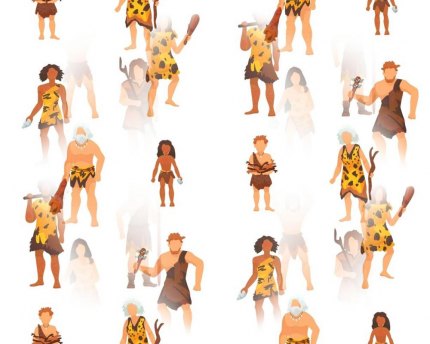
The cave is the site of discoveries from the late Lower Paleolithic period, 400,000 years ago, according to the Tel Aviv University newsroom. Our ancestors used marrow as a source of nutrition, and the university explains that "the deer metapodials (bones) were kept at the cave covered in skin to facilitate the preservation of marrow for consumption in time of need."
In other words, it was an early form of food storage, or, as the university's news release puts it, "like canned soup."
The study, "Bone marrow storage and delayed consumption at Middle Pleistocene Qesem Cave, Israel," by Ruth Blasco et al., was published in the Oct. 9 issue of Science Advances.
The history of inequality: In a separate study, researchers describe social inequality not just as an intractable problem -- but as an historic one.
Scientists analyzed Bronze Age cemeteries in the Lech Valley, near Augsburg, Germany, according to researchers at the Ludwig Maximilian University of Munich.
Their work -- focused on life in southern Germany 4,000 years ago -- reveals that needy men and women lived in households with the well-off, scientists say. But they could only speculate on whether these individuals were servants or slaves.
The researchers examined goods found in graves. Weapons and jewelry were only found in the graves of closely related family members and women who came into the family from long distances, up to several hundred kilometers away. Other unrelated individuals of local origin were found in the same cemeteries without high-status grave goods. The study reconstructed family trees from prehistoric cemeteries spanning four to five generations.
The research "Kinship-based social inequality in Bronze Age Europe," by Alissa Mittnik, et al., was published in the Oct. 10 issue of the journal Science.
Related:
In Brief: Murder among the ruins
Like us on Facebook and tell us what you think.